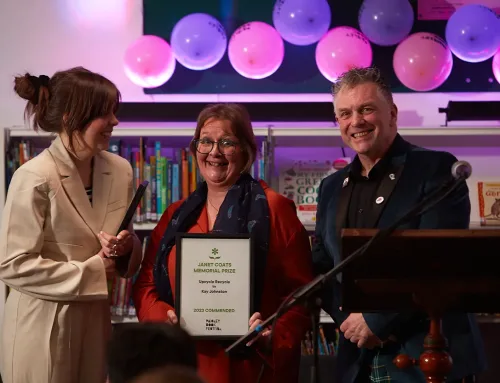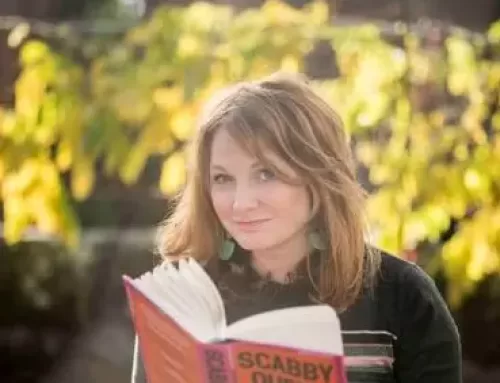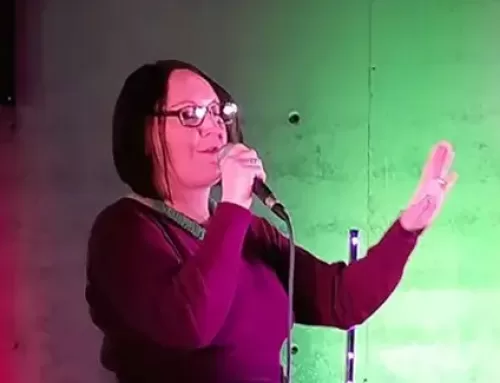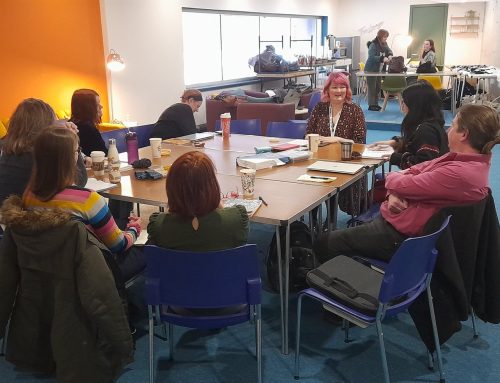This, the first of the weekend’s ‘Paisley Presents’ series is a spoken work extravaganza. The event stared even later than its already late billing, due to previous events running over time. Coinnach McCloud (the Hebridean Baker) was still signing books half an hour into the events allotted time, but the bar was open and everyone was suitably relaxed.
Titilayo Farukuoye was first to take to the stage. Joint winner of the 2022 Edwin Morgan Prize, Titilayo, informed the audience that she would be performing two ‘serious’ poems to begin her set. Underneath her mesmerising performance style which was calm and very well ‘metered’, Titilayo’s rebellious work is full of resistance as she calls for decolonisation, of the body, the mind and the spirit. Her work highlights the necessity of understanding the intersectional nature of oppression, its entanglements and the need to re-connect all that has been decoupled by racialised forms of capitalism and patriarchy. She ended her set with some delightfully playful and experimental poetry in which English, German and French played their part.
The next performer was the easily recognisable but no less radical Gray Crosbie. Introduced as a Queer poet, Gray is no stranger to our TV screens and radio waves. Gray performed poetry and flash fiction from their book ‘Love, Pan-fried’. Referring to themselves as a ‘masculine leaning trans-person’, Gray’s work covered a range of issues such as periods, breast binding, relationship breakups and jammy dodgers (which are, thankfully, now vegan again).
The last performer was Marcas Mac an Tuairneir, a multi award-winning poet who performs work in Scots Gaelic, English and Polari. According to Wikipedia, Polari is a form of slang or cant used in Britain by some actors, circus and fairground showpeople, professional wrestlers, merchant navy sailors, criminals, sex workers and the gay subculture. Combining Scottish Gaelic and Polari are, in themselves, political acts of defiance. Although Gaelic is currently undoing something of a Renaissance, the language was repressed and its speakers have been persecuted in Scotland since the Battle of Culloden in 1746. Marcas’ work is complex and wide-ranging in scope. Not unlike the work Titilayo, Marcus’ new book, Polaris is collection of poems that build on the intersection of linguistic and cultural identities. In the struggle against domination, in all its entangled forms, language is the weapon that is most feared, and thus most repressed by the powerful.
Another triumph of radical rebellion for the Paisley Book Festival.
by Joe Smith












